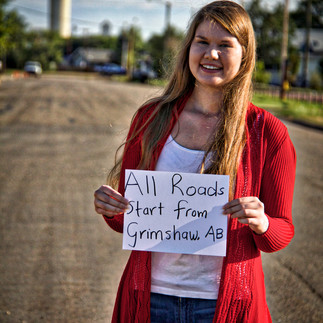Roundtable discussions to begin this fall

Whether it’s our villages, towns or rural municipalities, rural Alberta continues to see a decline in population. It’s a trend that started more than 150 years ago.
In 1861, 3.2 million people lived in Canada, of whom 2.7 million (84%) lived in a rural area. Canada’s economy was based mainly on the primary sector—chiefly agriculture—but also on natural resources such as wood and coal.
By 2011, fewer than one in five (18.9%) people lived in a rural area. This shift reflects major changes in Canada’s economy and society over several decades.
A declining population creates challenges for communities hoping to attract investment and encourage new developments. Add to that a greater hesitancy from the primary banks to loan to businesses, and we have a scenario that discourages development.
The Lac Cardinal Regional Economic Development Board (LCREDB) hopes to encourage development with the creation of the Lac Cardinal Investment Cooperative. Most people are familiar with co-ops, many people utilize them regularly, like the Co-op in Grimshaw. We’ve also seen agricultural co-ops and housing co-ops in our region.
LCREDB is taking this concept to a new level—an investment co-op that will hopefully generate revenue as a lending source and provide investment opportunities for our region.
“Our region, like many others, has a number of businesses with owners who want to retire,” said Dave Allan, Chair of LCREDB. “We are also always looking at ways to retain our youth.
The board saw an opportunity to collaborate local investment dollars with local entrepreneurs.”
Allan says the LCREDB is hoping to connect young entrepreneurs with existing business opportunities to develop a succession plan.
“This will keep the businesses in our communities and provide our young people great business opportunities to keep them here,” said Allan.
The program will not be limited to young entrepreneurs, but LCREDB envisions them as a prime market for this venture.
The investment co-op is not a new concept but is new to this region.
“We are still working out some fine details, such as RRSP eligibility,” said Allan. “Later this year we should have everything in place, and we will start marketing to attract investors and entrepreneurs.”
This will include roundtable sessions open to members of the public who want to learn more about this opportunity. The program is focused on raising dollars to invest locally, and loans from the cooperative will be charged interest, which will, hopefully, generate investment income for the investors. The co-op will also be looking for more board members.
The investment co-op development team has already been in discussion with businesses and entrepreneurs, who have expressed interest.
The Lac Cardinal Investment Cooperative is registered and has gone through all the legal hoops. They are working with their lawyer, Cooperatives First and Alberta Cooperatives to hammer out the details.
Shares will be offered for $5,000 each. Investors can purchase multiple shares. Once a set number of dollars (held in trust) is gathered, the co-op will begin vetting business opportunities and entrepreneurs to find matches.
“We will work with Community Futures Peace Country to help guide us through the matching process to assess eligibility for the entrepreneur as well as business case development and eligibility for investment,” said Allan. “Additionally, Community Futures is an excellent source for business loans and matching funds from the investment co-op.”
The role of the co-op is to raise funds locally to invest into local business opportunities. Shares can be bought by anyone; however, investments will only be made to business opportunities in Grimshaw, Berwyn or the M.D. of Peace.
Entrepreneurs can be from outside the Lac Cardinal region, but the business venture must happen in one of the three Lac Cardinal communities.
For more information on the cooperative, contact Dan at edo@laccardinalcountry.com.
Roundtable meetings are scheduled to begin this fall.
Check out laccardinal.com for more information and for future roundtable dates.
Words by Dan Dibbelt, Economic Development Officer of Lac Cardinal Regional Economic Development







Comentários